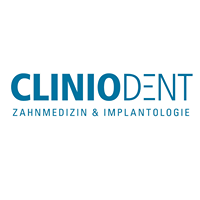Dental In Switzerland
Dental implants in Switzerland are titanium pins similar to a "screw", surgically positioned in the maxillary bone (upper arch) or in the mandibular bone (lower arch), replacing the roots of the teeth.
On top of the implants, prostheses are installed in Switzerland, which represent and maintain the function of the tooth itself.
After approximately 3 to 6 months after installation of the titanium implant (total osseointegration time), the prosthesis placement process can be started in Switzerland. A more recent process in Switzerland proposes the rapid installation of teeth, called immediate loading.
Indications and contraindications for implants in Switzerland
Dental implants in Switzerland are indicated for almost all cases of missing teeth. The most common contraindications in Switzerland are situations in which patients do not have sufficient quantity and quality of bone structure for the installation of implants.
In these cases there is a need for bone regeneration procedures, so that treatment with implants is indicated. Bone loss makes it difficult to place implants, which leads, in most cases, to the need for a Bone Graft procedure in Switzerland at the site, aiming at the future installation of implants.
The patient who will undergo treatment with osseointegrated implants in Switzerland undergoes a series of exams in order to reduce the chances of failure (the implant does not stick to the bone).
Can the implant be rejected by my body in Switzerland?
The dental implant in Switzerland is made of titanium, a pure material, grade IV, which does not corrode, does not produce any type of antigenic reaction in the body, and is immunologically inert. So there is no danger of rejection.
However, as the mouth is a contaminated place, even with all asepsis care, there is a risk of local infections, which can lead to the loss of the implant. Fortunately, this rarely happens.
What are the risks of surgery for implant placement in Switzerland?
In the pre-surgical evaluation in Switzerland, pre-operative medication is performed with analgesics, anti-inflammatories, and antibiotics.
The surgery in Switzerland is performed under local anesthesia and after its completion, the patient receives an ice pack to apply to the site, in order to avoid edema (swelling).
Preoperative exams free the patient from surgery in Switzerland, reducing the risk of complications. It is considered a minor oral surgery and lasts an average of one hour to one hour and a half. After the surgery, the patient must rest according to the postoperative recommendations given to him.
Dental In Switzerland recommends that the patient rests for the first 24/48 hours, using liquid and/or pasty foods at meals, preferably cold or iced. It is essential that the patient follows the recommendations.
What precautions should we take after placing the implant and the prosthesis in Switzerland?
Every prosthesis is subject to accidents during the masticatory act. The patient in Switzerland should avoid excessively hard and highly pigmented foods. Bacterial plaque control should be the same for implants and natural teeth. Periodic control must be carried out by the dentist, at least once every 6 months.
How long does a dental implant last in Switzerland?
An implant can last from 30 to 40 years, depending on the patient's care with hygiene and nutrition. That is, depending on the age of its placement, it can last a lifetime.
DENTAL IMPLANT ADVANTAGES IN SWITZERLAND
A dental implant in Switzerland is the best solution to replace a missing tooth;
Prostheses on implants currently resemble 100% natural teeth in Switzerland, making the implant imperceptible;
The dental implant in Switzerland will allow you to speak, eat and smile comfortably and safely;
Dental implants stop the bone loss caused by the use of fixed bridges and dentures.
ADVANTAGES OF HAVING YOUR IMPLANTS DONE IN SWITZERLAND;
Switzerland works with the best implants: Straumann Swiss implant is considered the best implant in the world.
Specialists use the best techniques of modern implant dentistry;
In Switzerland, they work with the technique of virtually guided surgery in 3D, without cutting and without stitches.
Can teeth whiten harm teeth?
Having a white and bright smile is the great wish of many people. There are two basic ways to achieve tooth whitening, seeking specialized dental offices or investing in home methods.
Basically, bleaching happens through the application of products that release oxygen particles, which will eliminate stains through the redox process. It is important to carry out whitening with a dentist's supervision, as the poorly performed procedure can harm the health of the teeth.
Find out here if teeth whitening can harm your teeth and find the best ways to avoid unnecessary risks.
Increased tooth sensitivity
The tooth whitening procedure is done using gel products, which have acidic properties. This gel will act directly on the dental surface, and on the enamel of your teeth. In a tooth whitening procedure, the patient is expected to experience some sensitivity in their teeth, resulting from the action of acids. This sensitivity will last for a few days until the enamel has completely regenerated.
On the other hand, contrary to what many believe, this sensitivity does not mean fragility of the teeth and is restricted only to the period of execution of the procedure, since the calcification of the teeth itself happens through saliva. To avoid damage to the teeth, before whitening, the person's oral health should be analyzed in order to identify any excess sensitivity. or problems with teeth and gums.
Professional whitening vs home whitening in Switzerland
Nowadays there are several whitening methods in Switzerland, both professional and at home. Professional whitening in Switzerland is carried out by the dentist and monitored by them, who will carry out the entire assessment of oral health and determine the best procedures in order to obtain results with the minimum risks.
Home whitening in Switzerland, on the other hand, made with products like lemon, sodium bicarbonate, and even some bought in pharmacies, has a greater risk of causing irritation and gum problems, if not accompanied by a dentist. Therefore, to avoid any damage caused by dental whitening, it is important to have an evaluation with your dentist in Switzerland.
Cost of Dental in Switzerland
To give you a rough idea, a basic dental check-up and cleaning could cost around CHF 300. But, more extensive treatments will cost significantly more. For example, getting a crown fitted might cost between CHF 1,200 to CHF 1,700.
























